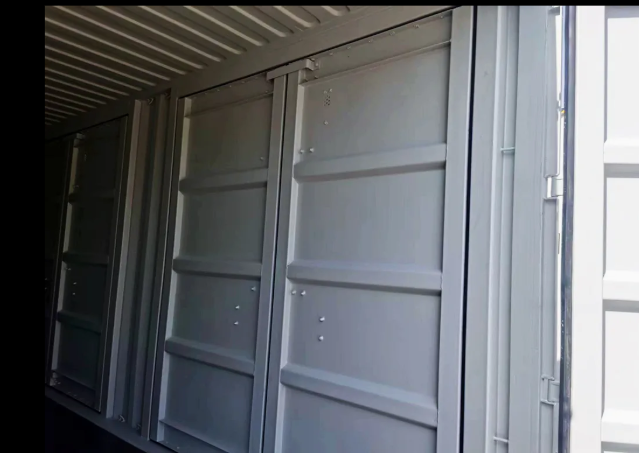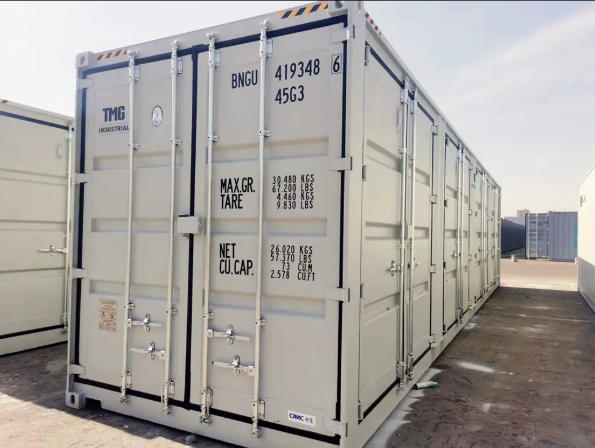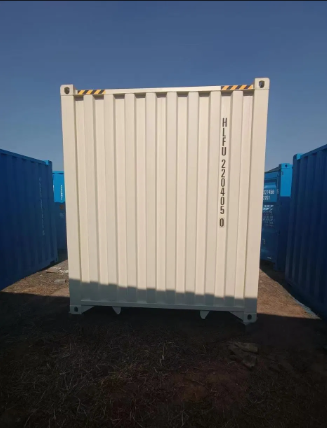In the world of chemical storage and transportation, selecting the right container is crucial for ensuring safety, maintaining product integrity, and complying with industry standards. Among the various materials available, polypropylene containers have emerged as a preferred choice for storing mild corrosives due to their excellent chemical resistance, durability, and cost-effectiveness.
This comprehensive guide explores the advantages of polypropylene containers specifically designed for mild corrosives, their applications across different industries, and key considerations for choosing the right container. We will also delve into how these containers integrate with modern logistics solutions, including tank containers, and why they are an indispensable component in chemical handling operations.
Understanding Mild Corrosives and Their Storage Needs

What Are Mild Corrosives?
Mild corrosives are chemicals that cause corrosion or damage to materials over time but do so at a relatively slow rate compared to strong corrosives. Examples include:
- Acetic acid (vinegar)
- Mild acids like citric acid
- Certain cleaning agents
- Some industrial chemicals with lower acidity or alkalinity
While not as aggressive as strong acids or bases, mild corrosives still demand proper containment to prevent leaks, spills, and environmental contamination.
Storage Challenges of Mild Corrosives
Storing mild corrosives involves addressing several challenges:
- Chemical Compatibility: Containers must resist degradation upon contact.
- Leak Prevention: Ensuring the container’s integrity over time.
- Safety Compliance: Adhering to regulations governing chemical storage.
- Durability: Withstanding transportation stresses without damage.
- Cost-effectiveness: Balancing safety with affordability.
Why Choose Polypropylene Containers for Mild Corrosives?
Chemical Resistance
Polypropylene (PP) is a thermoplastic polymer known for its excellent resistance to acids, alkalis, and many organic solvents. This makes it particularly suitable for storing mild corrosives, which require materials that won’t degrade or react with their contents.
Durability and Mechanical Strength
PP containers are robust, resistant to cracking and impact damage, and can withstand rough handling during transportation and storage. This durability reduces the risk of leaks and spills.
Cost-Effectiveness
Compared to other specialty plastics and metal containers, polypropylene offers a balance of affordability and performance. Its relatively low manufacturing cost, combined with long service life, makes it a popular choice across various industries.
Ease of Fabrication and Customization
Polypropylene can be molded into various shapes and sizes, allowing for tailored solutions that fit specific storage or transportation needs. This flexibility extends to integrating fittings, valves, and lids for ease of use.
Environmental Resistance
PP containers resist moisture, mold, and corrosion caused by environmental factors like humidity, making them ideal for outdoor storage.
Applications of Polypropylene Containers for Mild Corrosives
Chemical Industry
- Storage of acids and cleaning agents: Polypropylene tanks and containers safely store and transport mild acids, alkalis, and cleaning chemicals.
- Industrial processing: Used in manufacturing plants for holding corrosive liquids during production processes.
Agriculture
- Fertilizers and pesticides: Polypropylene containers are suitable for storing mildly corrosive agricultural chemicals, ensuring safety and compliance.
Food and Beverage Industry
- Food-grade chemicals: Certain food processing chemicals that are mildly acidic or basic can be stored safely in polypropylene containers.
Pharmaceutical Sector
- Chemical reagents: Used for storing chemical reagents and solutions with mild corrosive properties.
Logistics and Transportation
- Tank containers: Polypropylene-lined tank containers are used extensively for bulk transportation of mild corrosives, offering a safe and cost-effective solution.
Integrating Polypropylene Containers with Modern Logistics: Tank Containers
What Are Tank Containers?
Tank containers, also known as ISO tank containers, are standardized containers used for transporting bulk liquids safely across the globe. They are built to international standards, making them suitable for intermodal transportation.
Polypropylene Tank Containers for Mild Corrosives
As illustrated on Equip Intermodal, polypropylene-lined tank containers combine the strength of steel frames with the chemical resistance of polypropylene linings. These tank containers are specifically designed to handle mild corrosive chemicals, offering several advantages:
- Corrosion Resistance: Polypropylene linings prevent steel corrosion, extending the container’s lifespan.
- Cost-Effectiveness: Lower maintenance costs compared to fully stainless steel tanks.
- Ease of Inspection: Polypropylene linings can be inspected and repaired if necessary.
- Environmental Safety: Reduced risk of leaks and spills during transit.
Benefits of Polypropylene-Lined Tank Containers
- Chemical Compatibility: Suitable for a broad spectrum of mild corrosives.
- Regulatory Compliance: Meets international standards for hazardous material transportation.
- Operational Flexibility: Compatible with multiple modes of transport—road, rail, sea.
- Reduced Downtime: Durable linings minimize the need for frequent repairs. Reefer containers
Key Considerations When Selecting Polypropylene Containers for Mild Corrosives
Compatibility and Chemical Resistance
- Confirm that the specific chemical’s properties are compatible with polypropylene.
- Consult chemical resistance charts or manufacturers’ datasheets.
Container Size and Capacity
- Determine the volume requirements based on usage and transportation needs.
- Polypropylene containers are available in various sizes, from small bottles to large tanks.
Structural Design
- Consider whether the container needs additional features such as drains, fittings, or insulation.
- For tank containers, ensure compliance with ISO standards and structural integrity.
Regulatory Compliance and Certification
- Ensure containers meet relevant standards like ISO, DOT, or ADR.
- Check for certifications for chemical resistance, safety, and environmental compliance.
Cost and Maintenance
- Balance initial investment with long-term maintenance costs.
- Opt for containers with durable linings and corrosion-resistant features.
Environmental Impact
- Prefer containers made from recyclable polypropylene.
- Ensure proper disposal or recycling at end-of-life.
Advantages of Using Polypropylene Containers for Mild Corrosives
| Feature | Benefit |
|---|---|
| Chemical resistance | Prevents container degradation and leaks |
| Impact resistance | Reduces damage during handling and transport |
| Cost-effective | Lower initial and maintenance costs |
| Easy to clean | Facilitates hygiene and reusability |
| Lightweight | Easier to handle and transport |
| Customizable | Fits specific storage and handling needs |
| Environmentally friendly | Recyclable material options |
Industry Standards and Certifications
To ensure safety and compliance, polypropylene containers for mild corrosives should adhere to recognized standards:
- ISO 1496-3: Standard for tank containers.
- DOT 407/412: Regulations for hazardous materials transport in the US.
- ADR (European Agreement concerning the International Carriage of Dangerous Goods by Road): European standards.
- ASTM D543: Chemical resistance testing.
Manufacturers like Equip Intermodal provide containers designed to meet these standards, ensuring safe handling and transportation. BSLT Chemical Tank Containers
Maintenance and Safety Tips for Polypropylene Containers
- Regular Inspection: Check for cracks, leaks, or degradation.
- Cleaning: Use compatible cleaning agents to prevent contamination.
- Proper Labeling: Clearly mark containers with contents and hazard information.
- Handling: Use appropriate equipment to prevent impact damage.
- Storage Conditions: Keep containers in environments that minimize UV exposure and temperature extremes.
Future Trends in Polypropylene Container Technology
- Enhanced Durability: Development of composite materials to extend lifespan.
- Smart Containers: Integration of sensors for real-time monitoring of chemical levels and integrity.
- Recycling Initiatives: Improved recyclability and eco-friendly manufacturing processes.
- Customization: Growing demand for tailored solutions for niche chemicals.
Conclusion
Polypropylene containers stand out as a versatile, safe, and cost-effective solution for storing and transporting mild corrosives across various industries. Their chemical resistance, durability, and adaptability make them an indispensable component in modern chemical handling logistics, especially when integrated with advanced tank container systems.
Whether you are handling chemicals in a manufacturing plant, transporting corrosive liquids across borders, or storing chemicals for industrial use, choosing the right polypropylene container ensures safety, compliance, and operational efficiency.
For high-quality polypropylene tank containers designed to handle mild corrosives effectively, consult industry leaders like Equip Intermodal to find solutions tailored to your specific needs.
References
- Equip Intermodal – Tank Containers for Chemical Transportation.
- Chemical Resistance of Polypropylene. Plastics Technology.
- International Standards for Tank Containers. ISO, DOT, ADR.
- Industry Best Practices for Handling Mild Corrosives.
If you have any further questions about polypropylene containers or need assistance selecting the right solution for your chemical storage, feel free to contact our experts. Safety and efficiency are our top priorities!



